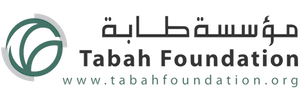Reducing The Role of Decision-Making Biases in Muslim Responsa
The role of decision-making biases in the fatwa process.
Muslims often consult a legal expert (a mufti) concerning legal issues and to mediate intra-personal situations. A consultation with a mufti follows a process which includes conception, adaption, evaluation, and, finally, the response. While reviewing fatwas for errors, the author observed that many of the errors encountered could be explained as errors resulting from rules of thumb employed to facilitate information processing and decision making – that is: decision biases resulting from employing heuristics.
This brief introduces the fatwa process, as well as decision-making heuristics and biases. It then presents an analysis of how biases come into play during the fatwa-delivery process. It concludes that there is a need to better understand decision-making heuristics and biases, and the negative impact of relying upon heuristics in Islamic disciplines. It also recommends that muftis be informed of decision-making biases, and that mufti training programs include decision-making biases in their curriculum so as to improve the quality of the services they provide. It is hoped that examining these errors in this way might help reduce future errors and improve the impact that fatwas have on petitioners’ lives.
